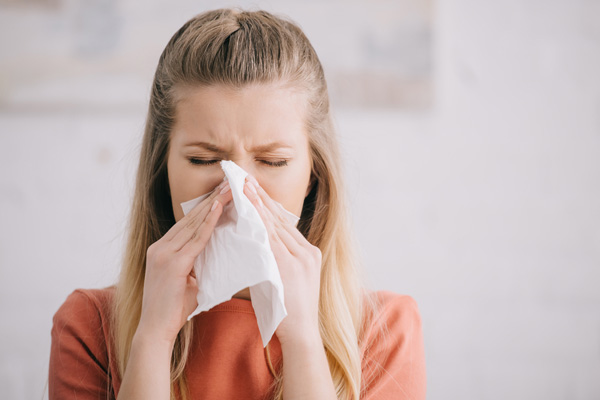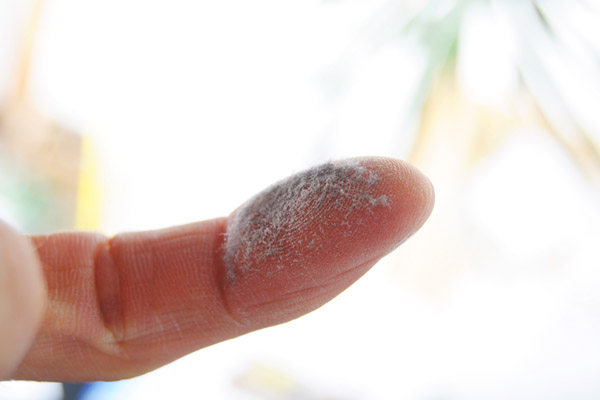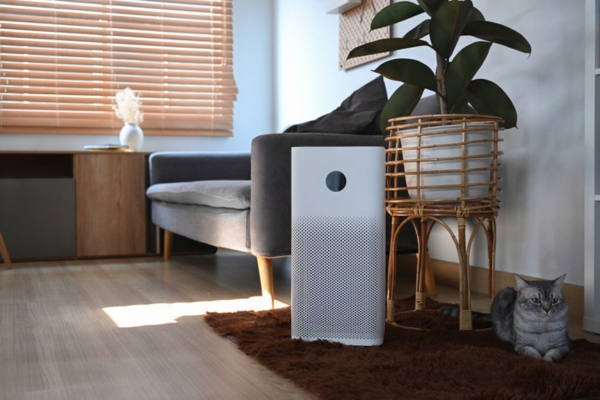Contents
- 1 Common Indoor Air Quality FAQs
- 1.1 Why is Indoor Air Quality Important in My Home?
- 1.2 How Do Indoor Air Pollutants Enter My Home?
- 1.3 What Are the Most Harmful Pollutants Impacting Indoor Air Quality?
- 1.4 Where Are Air Pollutants Commonly Located?
- 1.5 Can My HVAC System’s Filters Eliminate Indoor Pollutants?
- 1.6 What Types of HVAC Air Filters Are Recommended?
- 1.7 How Often Should I Change My Air Filter?
- 1.8 Aside from HVAC Air Filters, What Other Products Can Improve Indoor Air Quality?
- 1.9 Can Household Plants Help Improve Indoor Air Quality?
- 1.10 Conclusion
- 2 Contact Wilcox Energy For Trusted HVAC Solutions

Indoor air quality, often overlooked, plays a vital role in the health and comfort of residents and employees in homes and office buildings. The term IAQ describes the state of air within and surrounding your living or working space. Ensuring good air quality is essential as it directly influences the well-being and safety of individuals occupying these spaces.
Poor IAQ can lead to a heightened risk of respiratory issues and allergies for some people. Be aware of the air quality in your residential or commercial environments; this aspect is vital to maintaining a healthy indoor atmosphere. Fortunately, with a few strategies and a good HVAC system, you can keep your IAQ in good condition. In this article, we discuss different indoor air quality FAQs that may provide helpful information for you.
Common Indoor Air Quality FAQs

Understanding the importance of IAQ is crucial. To aid in this, here are nine indoor air quality FAQs to help you become more aware of your surroundings.
Why is Indoor Air Quality Important in My Home?
Homes and buildings are generally enclosed spaces, with windows and doors often shut and any gaps sealed to support HVAC systems. This enclosed nature can inadvertently trap pollutants like dust, pollen, viruses, mold spores, chemical vapors, and pet dander inside.
While occasionally opening windows can help, it’s not always feasible. Over time, exposure to these pollutants can heighten the risk of allergies and respiratory issues, especially for those more susceptible.
Don’t compromise on indoor air quality. Reach out to Wilcox Energy and ensure your home environment remains safe and comfortable.
How Do Indoor Air Pollutants Enter My Home?
Indoor air pollutants are usually composed of minute particles. Common pollutants like dust can arise from everyday building materials such as fabric, wood, insulation, or wallboard. Human activity contributes, too, as we regularly shed dead skin cells that mingle with other dust components.
Pet owners deal with additional pollutants like animal dander and tiny flakes of skin, hair, or feathers. External pollutants, like pollen, can be brought indoors by the wind, people, or pets. Additionally, enclosed indoor environments can harbor contaminants from other sources, including viruses and bacteria.
What Are the Most Harmful Pollutants Impacting Indoor Air Quality?

The most concerning pollutants affecting indoor air quality are chemicals in nature. Key culprits include carbon monoxide, asbestos (common in older buildings), lead particles, and radon. Additionally, organic pollutants like mold pose significant health risks if inhaled or ingested.
Where Are Air Pollutants Commonly Located?
Air pollutants are almost ubiquitous, present in our air, and impossible to eradicate. They are often found in or exacerbated by certain indoor conditions, particularly moist areas. Common household areas like bathrooms and kitchens and items like unclean appliances, carpets, furniture, and basements can be hotspots for pollutants.
Can My HVAC System’s Filters Eliminate Indoor Pollutants?

A well-maintained HVAC system with effective filtration can significantly reduce indoor pollutants. This is contingent upon regular maintenance and periodic replacement of filters. Properly functioning HVAC filters play a crucial role in cleansing the air of various pollutants.
Breathe easier with Wilcox Energy’s indoor air quality solutions. Trust our certified technicians to optimize your home environment.
What Types of HVAC Air Filters Are Recommended?
There are several types of HVAC air filters to consider, each with its unique method of purifying indoor air. Ionizers function by electrically charging air molecules, using ions to remove particulates and microbes.
HEPA (High-Efficiency Particulate Air) filters are highly efficient and can trap about 99.97% of particles as small as 0.3 microns. UV filters utilize ultraviolet rays to eliminate microorganisms. Activated carbon filters work through adsorption, attracting and removing particulates.
How Often Should I Change My Air Filter?
The frequency of changing or replacing your air filters depends on several factors: the type of filter, the size of your house or building, the indoor pollution level, and whether you have pets. Generally, you should clean or replace your air filters every 30 to 60 days. Higher-quality filters may last up to 90 days. However, each home is unique, so it’s advisable to inspect your HVAC air filter monthly and replace it as needed.
Aside from HVAC Air Filters, What Other Products Can Improve Indoor Air Quality?

Various products can enhance indoor air quality, with their effectiveness depending on the specific pollutants in your home or building. For issues like mold, mildew, and microorganisms, UV lamps are beneficial for killing pathogens, thus preventing illnesses and allergies.
An air purifier can be a good solution if your indoor space is affected by particulates like dust, pollen, and pet dander or is exposed to chemical fumes. Consulting with an HVAC contractor can help you identify the most effective indoor air quality solutions tailored to your home’s needs.
Can Household Plants Help Improve Indoor Air Quality?

Indeed, certain household plants can enhance indoor air quality. Spider plants, Date Palm, Devil’s Ivy, Philodendron, Chrysanthemum, Peace Lily, and Boston Fern, are known to absorb toxic substances from the air. Besides this, they contribute to regulating humidity levels and add a pleasing aesthetic element to your indoor space.
However, their efficacy has limits. In areas with severe indoor pollution or where there’s a lack of effective mechanical or electrical air purification systems, plants alone may not suffice. It’s advisable to combine the use of plants with a robust air filtration or purifying system for a safe and healthy indoor environment.
Ready to improve your indoor air quality? Contact Wilcox Energy for reliable HVAC maintenance, repair, and installation services.
Conclusion
Attaining and maintaining good indoor air quality is manageable with consistent cleaning and regular HVAC maintenance. Additionally, various types of equipment are available to help manage indoor pollutant levels effectively.
If you have concerns about indoor air quality, consulting with your local HVAC contractor is wise. They can guide you on the necessary measures and recommend suitable equipment to ensure your home environment remains safe and comfortable.
Contact Wilcox Energy For Trusted HVAC Solutions
Wilcox Energy delivers top-notch heating and cooling services across the Southern Connecticut shoreline. Our team comprises highly skilled, professionally certified technicians who provide exceptional HVAC maintenance, repair, installation, and replacement services.
With their extensive knowledge and experience, our technicians ensure your HVAC system receives the best possible care. We can offer practical solutions to enhance indoor air quality, boost system efficiency, and increase comfort.
Wilcox Energy offers competitive prices for heating and cooling services in the region. Our reliable maintenance services can help extend the life of your HVAC system and help reduce your heating and cooling expenses. If you require HVAC repair or are considering a system upgrade, we are here to recommend the most suitable options for your home, keeping your budget in mind.
We stand behind our work with a satisfaction guarantee. To set up a service appointment, contact Wilcox Energy today. We provide free, no-obligation in-home estimates. Click the link to view our service area.
For more information about our heating oil deliveries or HVAC services, be sure to contact Wilcox Energy. You can click here to contact us or call us at (860) 399-6218. Call now!

Related Articles:
